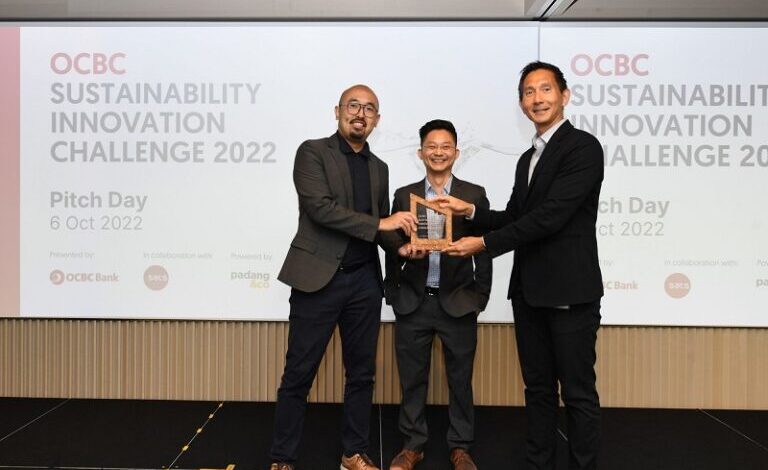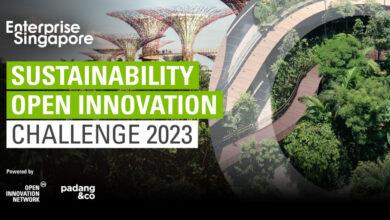
In the OCBC Sustainability Innovation Challenge 2023, OCBC will collaborate with TotalEnergies – a multi-energy company.
OCBC, with their considerable sustainable finance portfolio of $47 billion and extensive experience in offering innovative sustainable financing solutions, and TotalEnergies, a major player in energy transition with an ambition to achieve net zero together with society by 2050, can create a greater impact in this area by working together.
Together with TotalEnergies, the OCBC Sustainability Innovation Challenge 2023 aims to create value and positive changes to promote a sustainable energy transition.
Challenge:
- Challenge 1 : New Markets for Repurposed EV Batteries
- Challenge 2 : Greater Penetration of Distributed Generation Systems
- Challenge 3 : Better Infrastructure and Greener Energy for EV Charging
- Challenge 4 : Greener Raw Materials for Manufacturing
Benefits:
-
OCBC offers a prize pool of SGD150,000 and winning teams stand a chance to pilot their solutions with TotalEnergies.
- Winning teams will be fast-tracked into the final jury phase of the TotalEnergies On acceleration programme under Station F .
-
Winning teams will also have early access to mentorship and funding opportunities from Cathay Innovation and Tikehau Capital .
Eligibility:
- Looking for startups that possess solutions that can be adapted to address one or more of our challenge statements.
- Can be located anywhere in the world but must have an interest in developing and implementing your solutions with organisations in Southeast Asia after the Challenge.
Evaluation Criteria:
- Innovativeness – 30%
- How unique is the approach in solving the problem?
- How does the proposed solution compare to the next best alternatives?
- Effectiveness and Impact – 25%
- How effective is the proposed solution in solving the problem?
- How big is the potential impact or business value generated (e.g. amount of waste eliminated, value of byproducts, etc.)?
- Feasibility and Scalability – 25%
- Is the proposed solution technically feasible and can be piloted within the next 12 months?
- Is this solution scalable?
- Capability – 20%
- Does the team/company have the experience (shown through its track record), skills and resources that demonstrate its ability to develop this solution from proposal to pilot and beyond?







